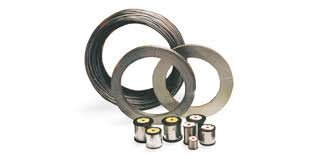Understanding Septic Tank Pumping: Essential Maintenance for a Healthy System

Maintaining a healthy septic system is crucial for any homeowner with a septic tank. Proper maintenance not only ensures the efficient operation of your system but also extends its lifespan and prevents costly repairs. Central to this maintenance is regular septic tank pumping. This process, though often overlooked, is essential for preventing system failure and safeguarding your property and environment.
What is Septic Tank Pumping?
Septic tank pumping involves the removal of sludge, scum, and other solid wastes that accumulate at the bottom and top of the septic tank over time. These wastes cannot be broken down by the natural bacteria present in the tank and can cause blockages if not removed. Regular pumping ensures that the septic system functions effectively by allowing the bacteria to continue processing wastewater efficiently.
Why is Septic Tank Pumping Necessary?
Preventing System Overload
Septic tanks are designed to hold a certain amount of waste. Over time, as solids accumulate, the tank’s capacity diminishes. Without regular septic tank pumping, these solids can overflow into the drain field, leading to clogs and potential system failure. Regular pumping prevents this overload, ensuring the tank can handle its designed capacity.
Protecting Your Property
A septic system that is not properly maintained can lead to unpleasant odors, sewage backups, and soggy areas in your yard. These issues can be both inconvenient and hazardous to health. Regular septic tank pumping helps to avoid these problems, maintaining a safe and pleasant living environment.
Environmental Responsibility
A failing septic system can contaminate local water sources, posing a risk to public health and the environment. By ensuring regular septic tank pumping, homeowners can prevent harmful pollutants from seeping into groundwater, thus playing a part in protecting their local ecosystem.
How Often Should You Pump Your Septic Tank?
The frequency of septic tank pumping depends on several factors, including the size of the tank, the number of people in the household, and the amount of wastewater generated. On average, it is recommended that a septic tank be pumped every 3 to 5 years. However, larger households or those producing more wastewater may require more frequent pumping.
Signs That Your Septic Tank Needs Pumping
Even with a general schedule, certain signs can indicate that your septic tank needs immediate attention:
- Slow Drains: If sinks, showers, and toilets are draining slower than usual, it may indicate that the tank is full.
- Unpleasant Odors: Persistent foul smells around the tank or drain field can signal a need for pumping.
- Sewage Backup: This is a clear sign that the septic system is overwhelmed and requires immediate pumping.
- Lush, Green Grass: While a healthy lawn is desirable, unusually green or spongy grass around the drain field may indicate that the tank is overflowing and leaking.
The Septic Tank Pumping Process
Understanding what happens during septic tank pumping can help homeowners appreciate the importance of this maintenance task. The process involves:
- Inspection: A professional will inspect the tank to assess its condition and locate the access points.
- Pumping: Using specialized equipment, the technician will remove the sludge and scum from the tank, ensuring it is thoroughly cleaned.
- Cleaning: The technician may also clean the tank’s filters and inspect the baffles, which help to prevent solids from entering the drain field.
- Inspection Post-Pumping: After pumping, the tank will be inspected again to ensure it is in good working order and to identify any potential issues.
Choosing a Professional Septic Tank Pumping Service
Selecting a reputable and experienced septic tank pumping service is crucial for ensuring the job is done correctly. Here are some tips:
- Research: Look for companies with good reviews and a proven track record.
- Experience: Choose a service with experience in handling septic systems similar to yours.
- Certification: Ensure the company is licensed and certified to perform septic tank pumping.
- Transparency: A reliable service will provide clear information about their processes, pricing, and any potential additional services required.
Conclusion
Regular septic tank pumping is an essential part of maintaining a healthy septic system. It prevents system overload, protects your property, and ensures environmental responsibility. By understanding the importance of this maintenance task and scheduling regular pumping, homeowners can avoid costly repairs and enjoy a smoothly functioning septic system. Remember, a well-maintained septic tank is key to a healthy home and environment.






